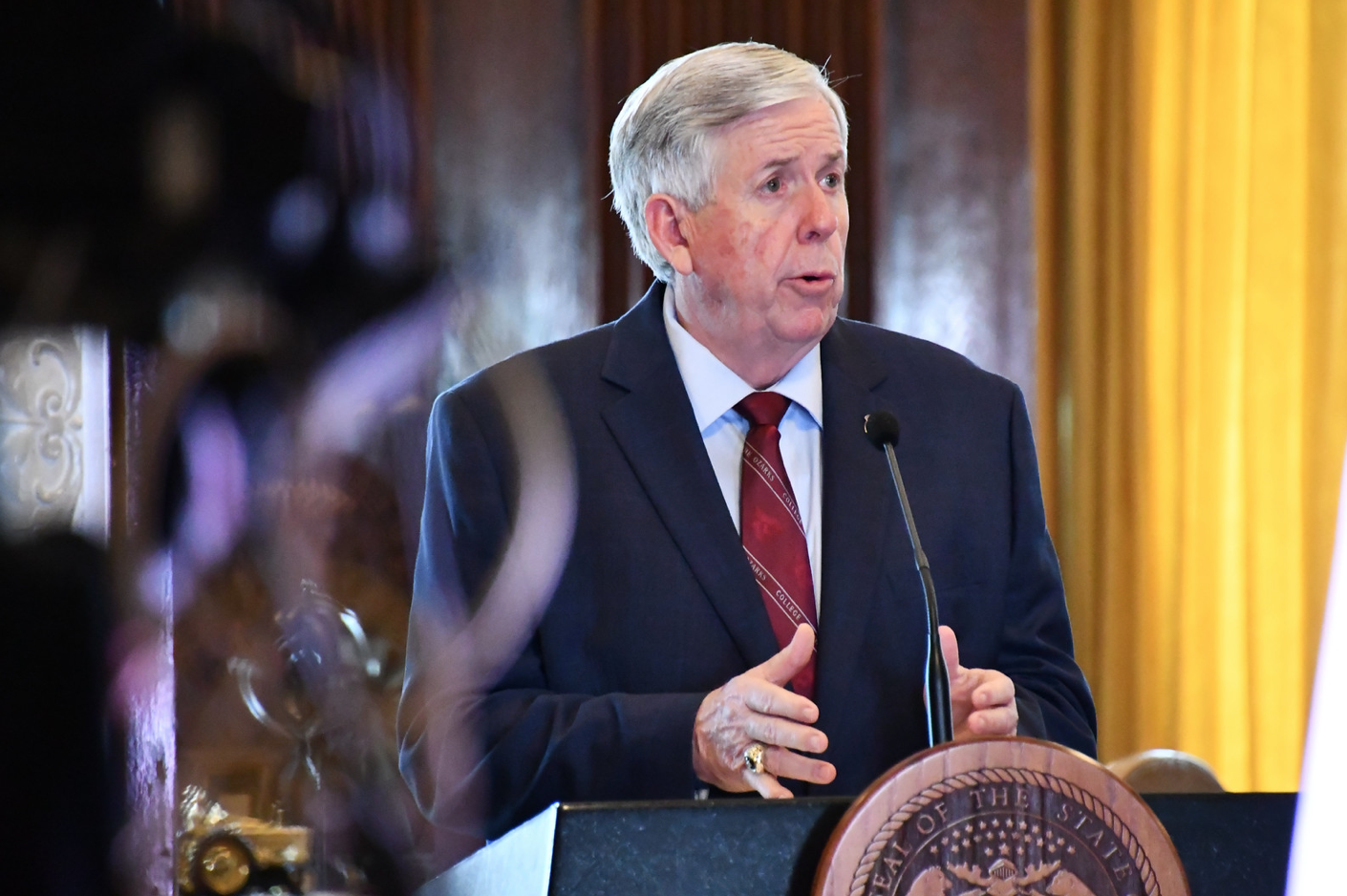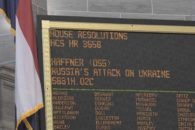JEFFERSON CITY, Mo. — Following recently renewed criticism about vacancies on the Peace Officer Standard and Training (POST) Commission, Gov. Mike Parson named two people to the advisory board Friday.
Demonstrations across the nation — including in Missouri — have broken out in recent weeks to protest racial injustice and police brutality. Earlier this month, two Democratic state representatives sent a letter to Parson, imploring him to re-evaluate the POST Commission.
House Minority Leader Crystal Quade and Missouri Legislative Black Caucus Chairman Steve Roberts asked the governor “to overhaul training requirements to de-emphasize the use of force, including prohibiting the use of chokeholds and other dangerous techniques known to kill even when done correctly.”
The duo also focused on the vacancies on the commission.
“A commission this important to public safety in Missouri cannot be allowed to operate on autopilot,” Quade and Roberts said. “Therefore, we request you immediately make the necessary appointments to ensure the POST Commission is at full strength and consists of members of diverse backgrounds who are committed to a new era of reform and accountability.”
So what does the POST Commission do?
As it’s only one aspect of the state’s POST program, the commission is tasked with establishing the core curriculum for Missouri’s 19 basic training academies, definitions, rules, and regulations for the overall program and continuing education of officers. It also serves as an advisory group for the Department of Public Safety (DPS) director.
The commission is not involved with the revocation of licenses of officers, but it can establish a procedure for the relicensing of peace officers when they have expired.
In addition, the POST Commission can set the minimum hours of needed basic training for peace officers and set the standards for the basic training of peace officers.
The POST Program licenses peace officers and ensures compliance with certain requirements. It can also conduct disciplinary investigations. Additionally, the program licenses law enforcement basic training centers and instructors, according to its website.
Who sits on the commission? And what should we know about the vacancies?
The POST Commission is made up of 11 members who are expected to serve a three-year term. The makeup is three police chiefs, three sheriffs, one representative of a state law enforcement agency, two peace officers at or below the rank of sergeant employed by a political subdivision, one chief executive officer of a training academy, and a public member.
No more than two members may reside in the same congressional district, according to the commission’s rules.
Current commission members are: Dr. Emanuel Cleaver III, public member; Chief Paul F. Williams; Chief Gary L. Hill; Sheriff Mark S. Owen, the chair; Sheriff David Marshak; Capt. Benjamin C. Jones; Edward Clark, a peace officer; and John W. Worden, CEO of Certified Training Academy Columbia.
There are three vacant slots: one police chief, one sheriff, and one peace officer.
Additionally, several people are serving expired terms. Cleaver’s term expired in 2017, Williams’ term expired in 2017, and Clark’s term expired in 2016.
Owen’s term expires in October.
“It’s similar to many boards and commissions, they’re affected by the requirements for individual slots,” Mike O’Connell, communications director for DPS, told The Missouri Times in an email. “For instance, the commission recently lost a member who was a sheriff to retirement. We just had a new commissioner for a slot that was for a police officer up to the rank of sergeant. She then got promoted and had to resign because she no longer [met] the requirement for her slot.”
“It’s nothing out of the ordinary, just the things that are common to boards and commissions, I believe,” O’Connell said.
What has Parson done?
On Friday, Parson announced the appointments of two members to the commission: Gary Hill, Lincoln University’s chief of police and director of public safety; and Dave Marshak, sheriff of Jefferson County.
Prior to his tenure at Lincoln, a historically Black college in Jefferson City, Hill served with the Cole County Sheriff’s Department. He’s also served as a site coordinator for the Missouri Sheriffs’ Association Training Academy and as a Joint Terrorism Task Force Officer for the FBI.
Marshak, from Festus, served for 22 years with the Jefferson County Sheriff’s Office before rising to the rank of sheriff. He’s been responsible for training employees and ensuring compliance with governing standards.
Aside from his Friday appointments, Parson has met with community and religious leaders across the state to address racial inequality, he said.

Kaitlyn Schallhorn was the editor in chief of The Missouri Times from 2020-2022. She joined the newspaper in early 2019 after working as a reporter for Fox News in New York City.
Throughout her career, Kaitlyn has covered political campaigns across the U.S., including the 2016 presidential election, and humanitarian aid efforts in Africa and the Middle East.
She is a native of Missouri who studied journalism at Winthrop University in South Carolina. She is also an alumna of the National Journalism Center in Washington, D.C.
Contact Kaitlyn at kaitlyn@themissouritimes.com.





































